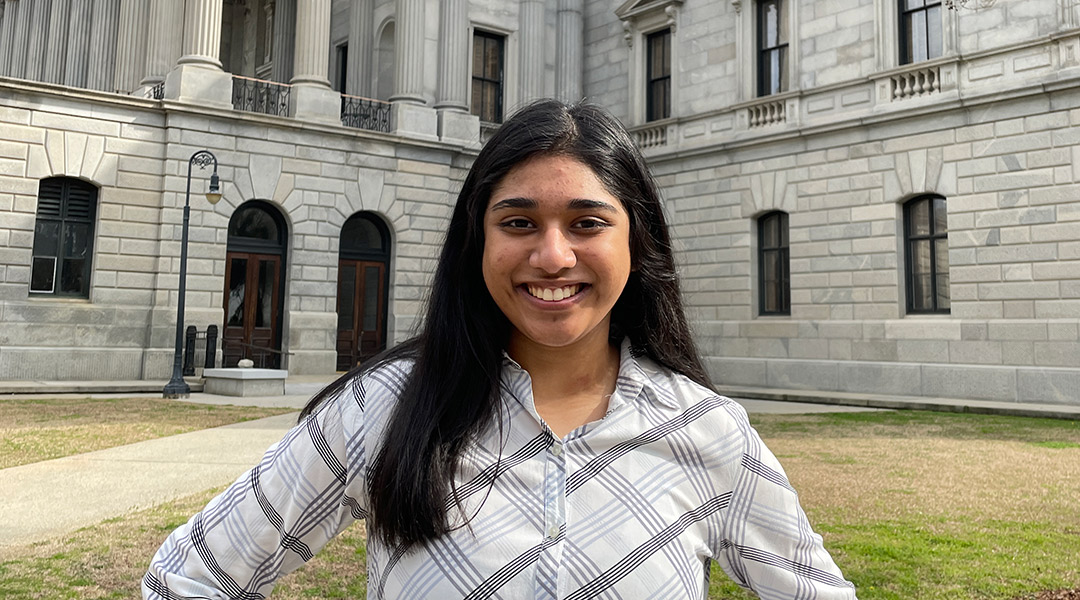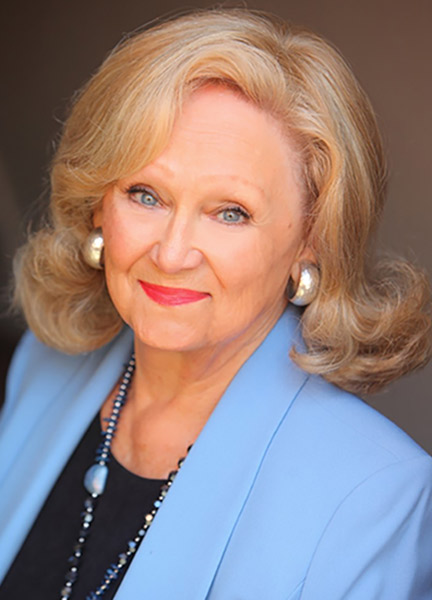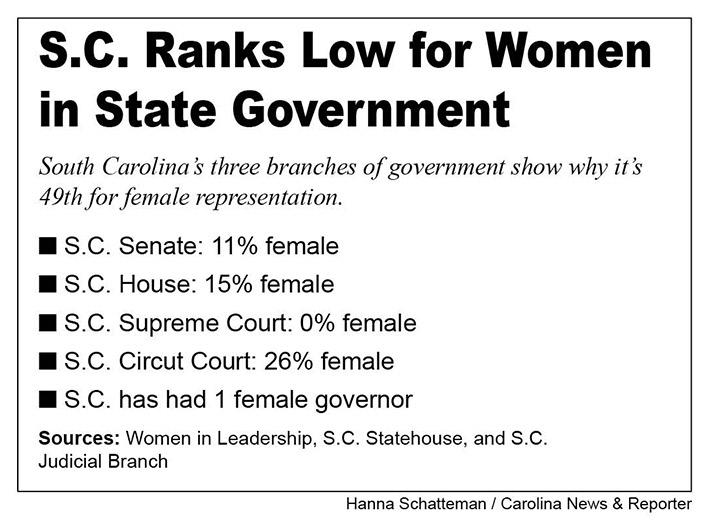London Patel is a USC student who has her sights set on working in state and national government. (Photo by Hanna Schatteman)
South Carolina ranks 49th in the country for female representation in state government and lost the last seat held by a woman on its Supreme Court this month.
Judge Kaye Hearn stepped down from the bench after reaching the mandatory retirement age of 72.
The state Senate’s Judicial Merit Selection Committee elected Gary Hill of Greenville to take Hearn’s place on the court. Female candidates Aphrodite Konduros and Stephanie Pendarvis McDonald withdrew their bids when they realized they didn’t have enough legislators’ votes to win.
Hill’s election makes the court all-male for the first time in 35 years. It also makes South Carolina’s the only all-male high court in the country.
The court is just the latest indication of women being underrepresented in state government. After the November 2020 election – the last election for which broad numbers are available – 14% of state legislators are women. Fifty-four percent of South Carolina’s residents are women.
“That (election) dropped us back,” said Sarah Ballard, media contact for South Carolina Women in Leadership. “Certainly there’s a lot of room for improvement. But we lost ground in the last election.”
Before the November 2020 election, South Carolina ranked 46th in the country for female representation in state government.
The 2022 election didn’t make the situation any better: Six Black female members of the House of Representatives lost their seats.
Even before the Supreme Court became all male, a study from the Institute for Women’s Policy Research found that it could take more than 200 years to achieve gender parity in South Carolina.
West Virginia is the only other Southern state to put in an equally poor performance.
Rita Allison knows what it’s like to be the only woman in the room
Former Rep. Rita Allison, a Republican who represented Spartanburg, has decades of experience as a state lawmaker. The first Republican woman to chair a major House committee, she knows what it’s like to be the lone woman in a room full of men.
Allison has noticed that women bring a different perspective to their government roles. She thinks that in a time of a strong political divide, women stand out because they are good at collaborating and working across party lines to create compromises that push legislation forward.
She said women stand out in bringing economic success to their district and often will focus on healthcare and family-oriented legislation more than their male counterparts because of their experiences.
While South Carolina might rank low for female representation in state government, Allison remembers a time when it was worse.
“There has been a lot of improvement,” Allison said.
Sarah Ballard wants to see more female candidates
Women In Leadership is a national organization that supports women running for and elected to public office, offers support and resources to women running for office.
It recognizes that female candidates often face different challenges to getting elected than their male counterparts.
“Nobody asks (women) to run for office,” Ballard said.
Research backs this up.
Men are asked to run, Ballard said. Also, women face additional scrutiny in elections.
“Women don’t think they have the experience, but they really do,” Ballard said. “They just need someone to say, ‘You’re qualified. You’re ready. You have something to offer.’”
With the recognized benefits women bring to the table, why does South Carolina rank so low in female representation compared to other states?
“It comes back to that … access to leadership opportunities,” Ballard said. “Access to (leadership) is really cultural and socioeconomic in South Carolina. And we just have a culture that hasn’t encouraged it.”
Organizations such as Women In Leadership are working to overcome these challenges and provide the resources needed for women to run for office.
Women In Leadership specifically offers databases tracking open seats throughout South Carolina, women running for and elected to office, training events and more.
London Patel wants to be part of the future
London Patel is a freshman at the University of South Carolina and a native to the Columbia area.
Patel hopes to become a lawyer setting policies at the national level.
But she realizes there are many steps to achieving that dream. She also understands there is a lot of work to be done to increase female representation in South Carolina.
Patel became interested in government work after participating in high school and college clubs.
While in high school, she participated in the YMCA’s Youth In Government. The program encourages high school students across the state to participate in mock state legislative, executive and judicial government experiences.
Patel is part of the Mock Trial Club and student government at USC. She’s also reactivating a pre-law fraternity with some peers.
She’s passionate about female involvement in government and is disappointed by the number of women involved in higher levels of state government.
“It’s just really sad because it’s not representative of our population at all,” she said.
Patel sees female representation as a generational issue and thinks that, as her generation steps into the workforce, South Carolina will see more women elected and appointed to higher levels of government.
When Hill was elected, South Carolina became the only state in the nation without a woman on its Supreme Court.
“I don’t even know how to react to that,” Patel said. “We’re taking steps backward, and we should be taking steps forward.”
Patel, like Allison and Ballard, thinks women bring unique perspectives to governing.
Like Allison, Patel agrees that women need support and more role models.
And she urges any woman who wants to be more involved in government to step out of her comfort zone.
The support? It will have to come from colleagues, constituents and mentors, even amid an already changing societal perspective, Ballard said.
“You know, women have been told for a long time that leaders need to act more like a man, when really the fact that things like compassion and altruism are not weaknesses,” Ballard said.




